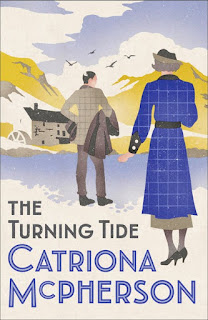Today I’m going off topic in order to write about the release of a short story of mine next week. But, so as not to neglect this week’s question altogether, I will give a brief answer.
If you had to stop your life of crime (writing) what other types of books would you like to write?
Answer: Books written by Stephen King.
Now back to today’s post.
On Tuesday, December 1, 2020, a new anthology, IN LEAGUE WITH SHERLOCK HOLMES, comes out. My story, “The Twenty-five-year Engagement” is one of fifteen in this new collection, edited by Laurie R. King and Leslie S. Klinger. The contributors make up a murderers’ row of writers, some from the world of crime fiction, others from horror and science fiction. All have written intriguing stories inspired by the Sherlock Holmes canon. My humble offering differs from the other fourteen, in that I was the only one foolish enough to submit a story featuring Sherlock Holmes and Dr. Watson themselves. Somehow I must have missed the memo. I sincerely hope I do not end regretting my choice, what with all the Sherlockians, fans, experts, and scholars out there who might well find nits to pick in my contribution. My attempts to head off potential gotchas led me to undertake some thorough research. That process is the subject of my post this week.
In the past, I’ve touched on the research process for this story, as well as my Ellie Stone books, which are set in the early 1960s. In the case of “The Twenty-five-year Engagement,” however, I was plunging into a very different world. A challenging, mostly unknown (to me) world. My story takes place in November, sometime in the early 1880s. Watson describes the period only as “during the time of my early acquaintance with Mr. Holmes.”
Time period aside, another complicating factor for me was the setting of my story: London. I knew that if I got details wrong, a foreign place would pose potential risks for authenticity. So, faced with three daunting challenges—satisfying the Conan Doyle faithful, getting the period details right, and making sure the language came across as authentic for late-nineteenth-century London—I leaned heavily on four main resources in my research. I consulted countless other references, as well, but those tended to be one-offs, useful for individual details. The four listed below were the lifesavers for me.
1. THE COMPLETE SHERLOCK HOLMES
First, and most important, I relied on the Sherlock Holmes canon itself. I re-read the whole thing, the four novels and all the stories. That took about a month, and it put me in the proper frame of mind to make a stab at a Holmes story. The themes and characters felt new again.
2. A SHERLOCK HOLMES CONCORDANCE
Second. A companion resource to the original works, and one I would recommend to anyone writing a period piece or pastiche of Holmes, is the Sherlock Holmes Concordance. It’s online and free. Google it. A simple search will tell you if the word or phrase you’re considering using ever appeared in the books or stories. The last thing you want to do is insert an anachronism—linguistic or historical—in your story. The concordance is a powerful tool to check the language usage of Holmes’s time. But even if Conan Doyle didn’t use the word you’re after, it still might have been in currency at the time. That leads me to the third resource.
3. GOOGLE NGRAM VIEWER
Ngram Viewer allows users to search for terms used in works published from 1500 to 2019. Not every work is included, of course, just those that have been digitized using optical character recognition (OCR). Still, Ngram Viewer’s text corpora include millions of books, magazines, and other printed materials. And in several languages: English, French, German, Hebrew, Italian, Russian, Spanish, and even Simplified Chinese.
For my story, I used Ngram Viewer to research terms that I could not find in the Sherlock Holmes Concordance. I forced myself to look up every word and phrase I was using, even when I thought it was surely a term in use in late-nineteenth-century England. I discovered several anachronistic words and phrases in my story. Words I’d been sure were in use at the time. Yet they were not. One example was “soldiered on.” It sounded old-timey to me. Surely people used it in London in the 1880s. Only they didn’t. The term dates to mid-nineteenth century America and only gained traction in England around the time of the First World War. The Great War, if we’re speaking British. That was far too late for my story, so I removed it.
Here’s a fascinating piece of information that I discovered via Ngram. From the 1880s, it provided information that added a great moment to my story.
And the “proverb” at the bottom? It was actually Jesus who said it.
“And he said, Who art thou, Lord? And the Lord said, I am Jesus whom thou persecutest: it is hard for thee to kick against the pricks.” Acts 9:5 (KJV)
Ngram Viewer can provide writers with the confidence that certain words were in currency at different times in history. Some searches take longer than others, of course. To see just how powerful Ngram Viewer can be, take a look at the advanced usage information.
https://books.google.com/ngrams/info .
4. BETA READERS
This fourth resource is essential. Fresh eyes are always useful. I consulted British readers to assure that my dialogue and narration sounded authentic. There were some useful suggestions, which I gladly accepted. It is with great reluctance that I thank author Mark Pryor, who, despite being smug, witless, and cheap, helped me greatly on this story. I kid, of course. Mark isn’t cheap.
I also relied on some of my tried and beta true readers who pointed out flaws in the story. For example, which action a violinist would perform first, rosining the bow or tuning the instrument? (It’s rosining, as I discovered.) One of my toughest readers went so far as to consult the concertmaster of the LA Philharmonic on a violin question he had. Turned out I was on safe ground. Whew.
Then my brother Joe showed me a gaping hole in the plot that no one else had noticed. I fixed it.
And, of course, my medical experts lent a hand on the subject of gonorrheal arthritis among the criminal classes. You’ll have to read the story...
Finally,
KNOW WHAT YOU DON’T KNOW
Researching and writing “The Twenty-five-year Engagement” reminded me that my favorite bit of advice still holds true. “Know what you don’t know.” Question everything. Each word, phrase, paragraph. Every bit of research. It’s the simplest rule I can think of, and—yet—it’s without a doubt the hardest to learn. I’ve failed to follow that advice countless times, but I keep trying. And it will serve you well in any endeavor. Not just researching historical fiction.
IN LEAGUE WITH SHERLOCK HOLMES features stories by Maria Alexander, Robin Burcell, David Corbett, Martin Edwards, Tess Garritsen, Derek Haas, Joe Hill and Martin Simmonds, Naomi Hirahara, Joe Lansdale and Kasey Lansdale, Lisa Morton, Brad Parks, Kwei Quartey, James Lincoln Warren, Chelsea Quinn Yarbro, and James W. Ziskin. It is edited by Laurie R. King and Leslie S. Klinger.
Available in hardcover, e-copy, and audiobook everywhere December 1, 2020.
Happy Thanksgiving! The game is afoot.




















